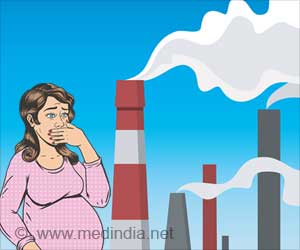No-meat diet is not the universal solution to tackle climate change, according to a new study.

‘Meat production and consumption is not the issue. Like any other food, when it is mass-produced, intensified, and commercialized, the impact on our environment is multiplied.’





For example, of all scientific literature on livestock published since 1945, only 13% covers Africa. Yet Africa is home to 20%, 27%, and 32% of global cattle, sheep, and goat populations. Eight of the world's top ten institutes publishing livestock research are in the United States, France, the United Kingdom, and the Netherlands. Only two, including the International Livestock Research Institute (ILRI), is headquartered in Africa, where the livestock sector is the backbone of the economy and where little data is available.Authors further argue that a singular focus on negative livestock-related environmental impacts ignores the critical but more positive role livestock play in ecosystem services, income, and asset provision, or insurance in low- and middle-income countries. It also overlooks more systemic questions about how animals are raised.
"Mixed systems in low- and middle-income countries, where animal production is fully linked with crop production, can be more environmentally sustainable," said An Notenbaert, from the Alliance of Bioversity International and CIAT. "In sub-Saharan Africa, manure is a nutrient resource which maintains soil health and crop productivity; while in Europe, huge amounts of manure made available through industrialized livestock production are overfertilizing agricultural land and causing environmental problems."
Across Africa's savanna, pastoralists pen their herds at night, a practice shown to increase nutrient diversity and biodiversity hotspots, enriching the landscape. Feed production may also be more local, whereas, in industrialized systems, it is mostly imported. In Brazil, soybean - a major driver of deforestation in the Amazon - is made into concentrate and exported to feed animals in places like Vietnam as well as Europe.
"Meat production itself is not the problem. Like any food, when it is mass-produced, intensified, and commercialized, the impact on our environment is multiplied," said Polly Ericksen, Program Leader of Sustainable Livestock Systems at the International Livestock Research Institute. "Eliminating meat from our diet is not going to solve that problem. While advocating a lower-meat diet makes sense in industrialized systems, the solution is not a blanket climate solution, and does not apply everywhere."
Advertisement
Authors acknowledge that livestock systems are known to be a major source of atmospheric greenhouse gases. But more data is needed for low- and middle-income countries to develop national mitigation strategies. They also urge a need to look beyond making animals more productive and toward resource-efficient and environmental systems that actively reduce emissions from agriculture.
Advertisement
"Better decisions about how to reduce global greenhouse gas emissions from livestock and agriculture in low- and middle-income countries can only be driven by better data," said Klaus Butterbach-Bahl, at the Institute of Meteorology and Climate Research, Atmospheric Environmental Research (IMK-IFU) Karlsruhe Institute of Technology (KIT) and ILRI.
"For that, we need more - and not less - locally-adapted and multi-disciplinary research together with local people in low- and middle-income countries, on sustainable livestock development, with all the supporting financial incentives, policies and capacity in place to intensify livestock production more sustainably, on a bigger scale."
Source-Eurekalert















